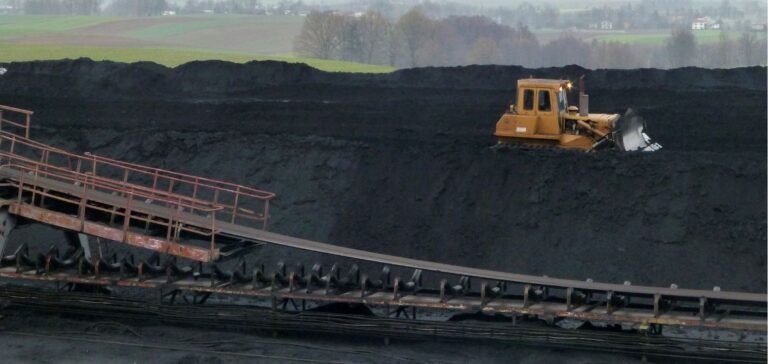A British court has rejected an NGO’s appeal against a British government permit to develop a new coal mine in northwest England, according to a decision handed down Wednesday to the parties and seen by AFP.
In December, London gave its approval to this controversial underground metallurgical coal mine project, the first of its kind in 30 years in the country, which was challenged the following month in two complaints, including one from the environmental NGO Friends of the Earth.
The appeal “is refused”, according to the decision of the High Court in London, which considers, among other things, that the government was justified in considering that the mine would have “an overall neutral effect” on climate change on a global scale. The British government argued that the coal produced would be used for steel production in the United Kingdom and Europe, not for electricity generation, and that it would replace coal that would otherwise have to be imported.
Friends of the Earth, as well as the local association South Lakes Action on Climate Change (SLACC) which had filed the second complaint, have already announced on Wednesday their decision to challenge the refusal before the same court, as authorized by the procedure. Opponents of the mine “have raised critical climate issues” but these “have been either dodged or avoided,” said Tony Bosworth of Friends of the Earth in a statement.
“As the world goes through an accelerating climate crisis, these issues cannot be ignored.” For its part, the British government declined to comment on an ongoing legal proceeding. This underground mine project in the county of Cumbria (northwest England) was first approved by the government in early 2021, sparking a wave of indignation from NGOs in the country. The local authorities of the county of Cumbria then decided to re-examine it, before the executive took over by announcing a public inquiry.
At the end of this procedure, a planning inspector finally ruled in favor of the project, on the grounds that the UK’s industrial decarbonization strategy does not prohibit the use of coal in metallurgy. The goal is to have the mine operational by 2025, extracting approximately 2.7 million tons of coal per year and creating 500 direct jobs. But the operating activities will have to “aim for carbon neutrality”, as the government assured us in December.






















